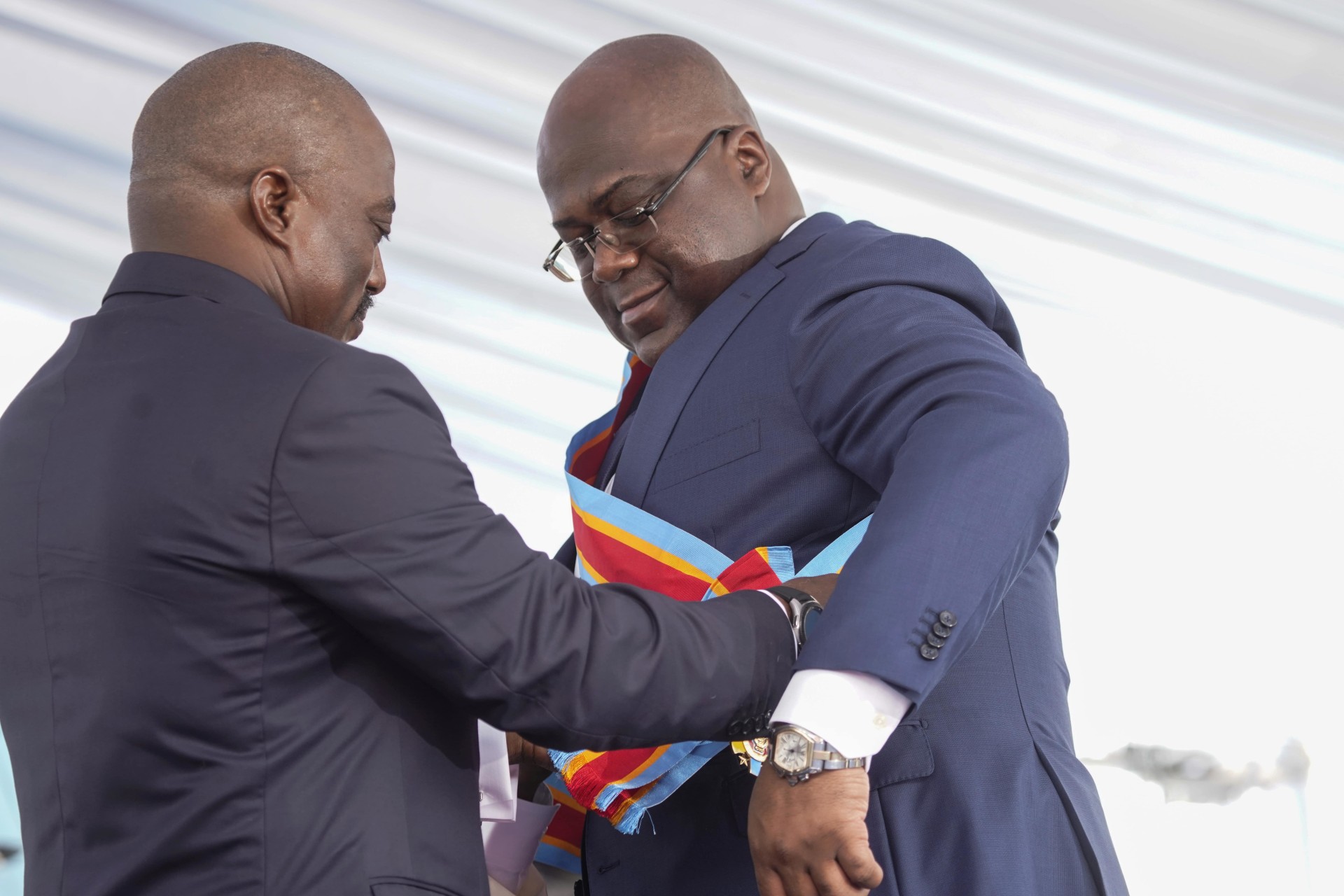Power-sharing Agreement Breaks Down in DRC

By experts and staff
- Published
Experts
![]() By Michelle GavinRalph Bunche Senior Fellow for Africa Policy Studies
By Michelle GavinRalph Bunche Senior Fellow for Africa Policy Studies
When Félix Tshisekedi assumed power in in the Democratic Republic of the Congo at the start of 2019, he did so not because of the will of the voters (who apparently favored a different candidate), but because he had entered into an agreement with his predecessor, Joseph Kabila, and Kabila’s political party, the Common Front for Congo (FCC). Tshisekedi and his party got the presidency, but the FCC dominated the parliament and provincial governorships, controlling most levers of power throughout government. Since then, the two parties have coexisted in an uneasy and profoundly unproductive partnership.
But earlier this month, Tshisekedi formally and publicly ended the alliance, aiming to turn a widening rift into a clean break. He had already challenged the FCC’s dominance with his appointments to the constitutional court and electoral commission. Recently he embarked on a set of inclusive political consultations clearly aimed at broadening support for a significant change. Now Tshisekedi is seeking to reconfigure the balance of power in Parliament, scoring a major success on December 10 when a majority of deputies voted to oust the President of the National Assembly, Kabila ally Jeanine Mabunda.
On the bright side, these developments could mean an end to a dysfunctional stalemate that has hindered governance in a country confronting multiple security, health, and economic challenges. Few advocates for reform in Congo would be sorry to see the FCC lose control. An examination of the eighteen-year record of Kabila’s presidency, and his behind-the-scenes machinations since finally succumbing to pressure to leave office, reveals little to inspire confidence that his political machine has either the desire or capacity to deliver needed governance solutions. But it is important to remember that for all the understandable frustration with Kabila and the FCC, to be opposed to their continued dominance is not the same as being a champion for increased accountability and better governance in the DRC.
Generations of Congolese people have suffered from terrible governance, both externally imposed and home-grown. A glimmer of hope for meaningful change would be most welcome. Whether the latest developments represent such an opportunity is not at all clear. Few savvy observers expect Kabila and his allies to quietly lick their wounds. What the pushback looks like, and how destabilizing it might be, remains to be seen. Even if Tshisekedi succeeds in wresting control of the levers of power from the FCC without a major flare up of political violence, there is no guarantee that changes in relative power at elite levels will translate to change in the direction of the country or the conditions of its people.
The stakes of the latest tussle are clear for politicians and businesspeople who depend on access to the state for profitable opportunities. But just as the 2018 election substituted elite accommodation for genuinely responding to the will of the people, the latest dramatic political developments could have little bearing on the lives of most Congolese. The measure of success for Congolese leadership should be found in concrete improvements in security, service delivery, transparency, and respect for the rule of law, not high-profile power struggles.
